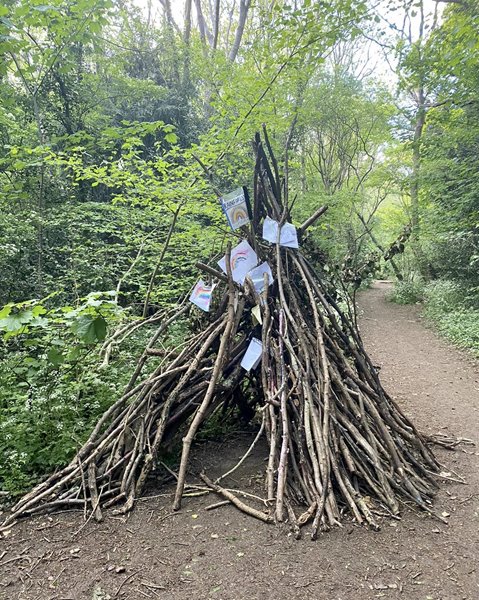The coronavirus pandemic has led to outbreaks of emotional turmoil. Many of us are experiencing combinations of fear, frustration, despair, loneliness, sadness, guilt and grief.
But there is one generally positive sentiment that has seemed to spread as quickly and be as contagious as the coronavirus itself: gratitude. When we look back on this period of lockdown from which the UK is just emerging, many of us will think of the Thursday night clapping-for-carers rituals. Although we were not allowed to literally ‘stand together’, we could do so metaphorically. We might also recall the unlikely success of Captain Tom Moore’s fundraising campaign for NHS charities that raised over £30m. Then there was also the drama of the Prime Minister’s illness and the effusive gratitude he expressed on his recovery.
I am in the midst of PhD research into gratitude in healthcare. The pandemic confounded my plans to observe the dynamics of gratitude in a hospital setting. I would never have wished it this way, but it has acted as the ultimate experiential intervention. I’ve been able to study how gratitude has been a recurring plot-point in the national conversation about coronavirus.
There have been many grand gestures. ‘Thank you NHS’ has been mown into fields or carefully marked out on furloughed football pitches. Landmarks have been lit up in blue as a sign of solidarity. But there have been more modest, heartfelt tributes. Relieved of my commute to London, like many others I have properly explored my neighbourhood for the first time, finding a range of creative messages to the NHS and keyworkers.
Many houses have rainbows on display – drawn, chalked, painted, knitted or collaged – and annotated with notes of thanks. There are pop-up gratitude gardens and elaborate front-garden ‘donation stations’. A bivouac has been erected in our local woods adorned with messages wittily inviting us to ‘stick’ together. We stumbled upon another, deep in the woods, with its name chalked on a branch: ‘NHS Rainbow camp’.
A woodland tribute to the NHS and keyworkers. Credit: Zara Kesterton.
We’ve all noticed how gratitude has acquired new agency. Healthcare workers have long been undervalued in terms of pay and job security, and now look! Like the slaves charged with whispering, ‘Remember, you too are mortal,’ into the ears of Roman generals during triumphal parades, plenty of commentators have expressed dismay at the level of adulation being levelled at the NHS and those who work in it. They are surely ‘just doing their jobs’. After all, gratitude is usually expressed for acts of generosity, and no one should feel that their labour is a generous act. But delivering healthcare is job for which Covid has willy-nilly changed the terms and conditions. Of course, expressing thanks is no substitute for a properly funded NHS, fully equipped with PPE to keep staff and patients as safe as possible. But to suggest that work and generosity are mutually exclusive is to mistake gratitude for a currency of compensation rather than appreciation. It seems to me that comedian Mark Watson got it right when he tweeted: ‘How about: yes, funding the NHS more efficiently would be better than clapping to thank them, but clapping is *also* a nice thing? Can't two things both be true sometimes, angry people of Twitter?’
I am moved by the gratitude shared on Care Opinion for healthcare provided during the pandemic
But metaphors matter and I have felt uncomfortable about the rhetoric of ‘heroism’ that often goes hand-in-hand with gratitude. It has been argued – by Prince William as well as others – that being labelled as ‘heroes’ might deter NHS workers at breaking point from seeking help when they need it for fear of appearing weak. The moral hazards of applying the language of myth to medicine are irrefutable.
In a blog post for Care Opinion, Sue Robins wrote about how necessary stories are for balancing out the graphs and numbers of the pandemic. Like Sue, I am moved by the stories of gratitude expressed on Care Opinion for healthcare provided during the pandemic, even – especially – from grieving relatives appreciative of efforts to relieve distress when the usual physical gestures of comfort are not possible. At a time when humanity feels precarious, this feedback speaks to the rehumanising stories of caring, kindness and empathy that are happening in care settings. By posting messages of appreciation for particular acts by specific people, those qualities are recognised as life-rafts in the midst of a storm.
Those of us who have had reason to express our gratitude are likely to have found that what psychologists say about gratitude is true. It enhances our emotional and social wellbeing. No one should feel obliged to be grateful to the NHS, but no one should be made to feel embarrassed or ashamed of it either. If you are grateful, do carry on finding ways to say so.
Gratitude in the time of coronavirus
Gratitude in the time of coronavirus https://careopinionuk-staging.azurewebsites.net/resources/blog-resources/86-images/bef1e9196fba467aa3f7d6f538271865.jpg Care Opinion 0114 281 6256 https://www.careopinion.org.uk /content/uk/logos/co-header-logo-2020-default.pngUpdate from King’s College London, Florence Nightingale Faculty of Nursing, Midwifery & Palliative Care
Posted by Giskin Day, PhD Student, King’s College London, Florence Nightingale Faculty of Nursing, Midwifery & Palliative Care, on
Thanks for your feedback.

